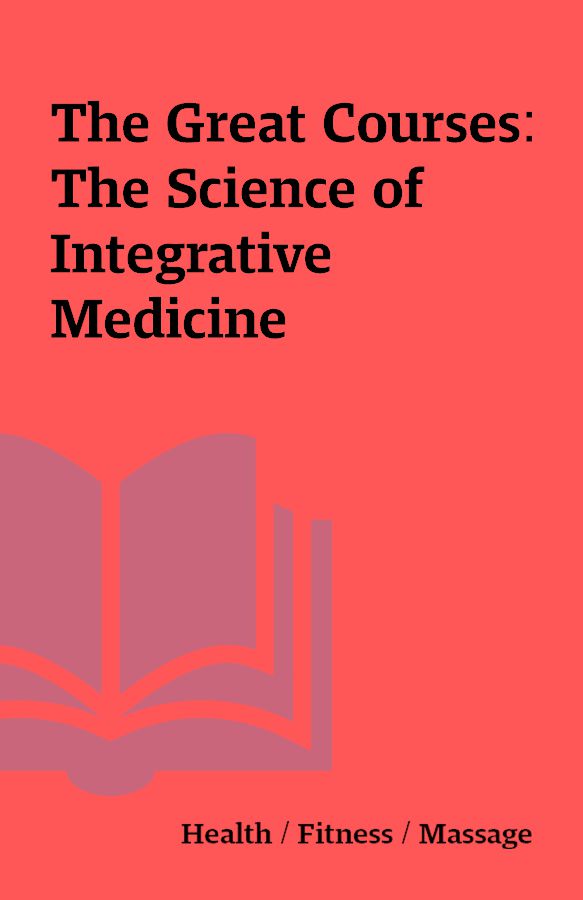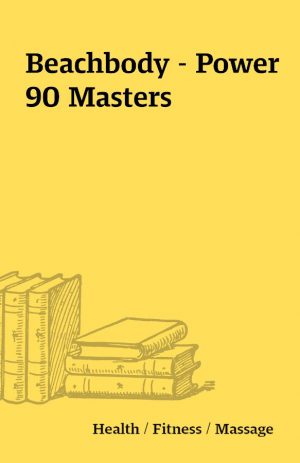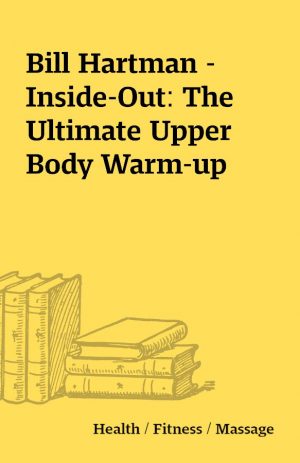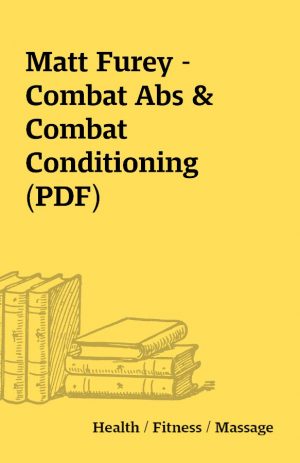The Great Courses: The Science of Integrative Medicine
TTC – The Science of Integrative Medicine
[ 1 eBook – PDF, 12 Videos – m4v ]
Description
The Science of Integrative Medicine Professor Brent A. Bauer, M.D. Director of the Mayo Clinic Complementary and Integrative Medicine ProgramPerhaps you’ve heard rumors about an herbal supplement that acts as the Fountain of Youth, improves your mood, and helps you lose weight. Maybe you’ve considered trying hypnosis to stop smoking, but you’ve heard it might be just a waste of money. You may be curious about how getting stuck with many sharp needles can actually alleviate pain and stress—when it seems like it should do the opposite.In The Science of Integrative Medicine, Dr. Bauer, of Mayo Clinic, introduces you to more than a dozen scientifically tested, integrative approaches and explains what they do and do not treat, empowering you to take your health options into your own hands. He leads you through the science and history of some of the most common practices and discusses the pros and cons of each. He also offers suggestions for when and how you might consider talking to your doctor about including these therapies in your wellness plan. Through this course, you’ll learn about:Treatments by professionals: • Acupuncture involves inserting thin needles at strategic points on the body. It is commonly used to treat nausea, fibromyalgia, and many kinds of pain. • Hypnosis induces a trance-like state where the mind is more open to suggestion. Hypnosis may be used to help manage pain, anxiety, and tension headaches, as well as to treat addiction and change negative patterns of behavior. • Massage can address pain, anxiety, tension, and chronic conditions, as well as aid in pre- surgery preparation and post-surgery healing. • Spinal manipulation is practiced by chiropractors and physical therapists. It can be particularly helpful for lower back pain.Treatments you can do on your own: • Meditation involves calming and clearing the mind. It is used to help treat anxiety, stress, high blood pressure, acute or chronic pain, and many other issues. • Music therapy can benefit your mental and physical health. It may help people with Alzheimer’s disease and autism, as well as depression. • Guided imagery involves bringing to mind a specific image or a series of memories to produce certain responses in the body. It’s used to treat headaches and some forms of pain. • Spirituality often involves an individual’s connection to others and a search for meaning and happiness in life. These connections have been shown to help people deal with medical illness and chronic disease.And physical exercises: • Tai chi is a graceful exercise in which you move from pose to pose. It’s been shown to improve balance and flexibility. • Yoga often involves a series of physical postures and a focus on breathing. Yoga is commonly practiced to relieve stress, as well as to treat heart disease and depression.In addition to teaching you about specific practices, Dr. Bauer reveals the key to getting the most out of any form of integrative medicine: a solid foundation of wellness that includes simple lifestyle changes that can lead to significant improvements in your health. For example, you’ll hear about the concept of NESS, which is based on research that demonstrates how a program involving diet, exercise, stress management, and social support can reverse the aging process on a cellular level in a test group.
You must be logged in to post a review.






Reviews
There are no reviews yet.